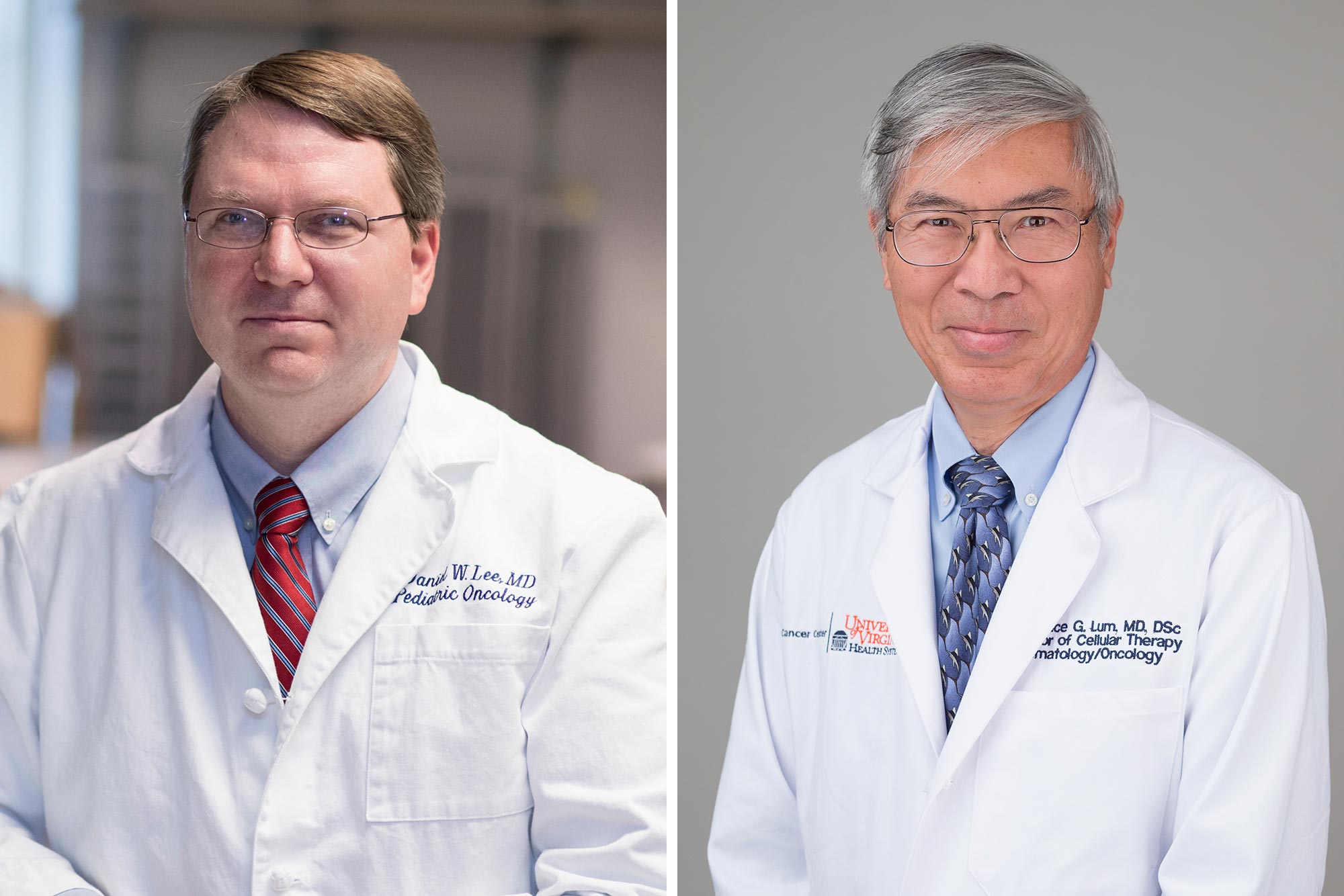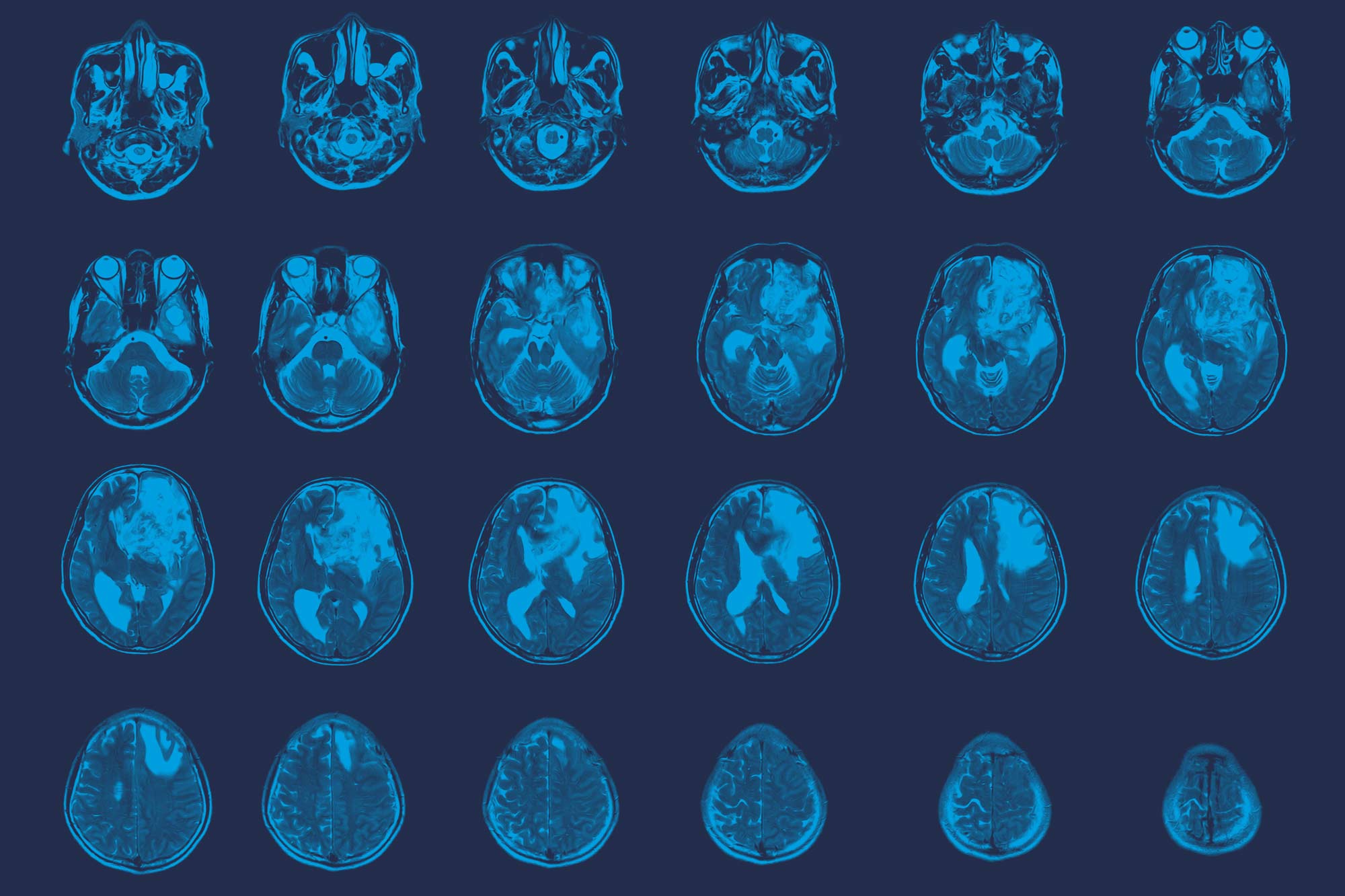Pioneering researchers at the University of Virginia Cancer Center are developing innovative ways to supercharge our natural immune systems to defeat cancer and save lives.
Cancer is an elusive disease – one that can hide from our body’s immune defenses and even hijack those defenses for its own purposes. It’s consistently one of the top causes of death for Americans, with more than a half-million people dying from it each year.
To battle the disease, doctors have long relied on the twin cudgels of chemotherapy, to poison the cancer cells; and radiation, to blast them to death. The treatments can be lifesaving, but they also carry terrible side effects.
UVA’s Dr. Daniel “Trey” Lee and Dr. Lawrence G. Lum and their colleagues are developing elegant alternatives that empower our immune systems to recognize and destroy cancer. Cancer “immunotherapy,” as it is called, works by weaponizing immune cells to perform what are, in essence, highly precise drone strikes on cancer cells.
“Our immunotherapy research program allows us to offer patients alternatives they can’t find at most other hospitals,” explained Dr. K. Craig Kent, chief executive officer of UVA Health and executive vice president for health affairs at UVA. “Dr. Lee and Dr. Lum are true leaders in their fields, and their efforts are set to improve care not just for patients here at UVA Cancer Center, but throughout Virginia.”

Dr. Daniel “Trey” Lee, left, and Dr. Lawrence G. Lum and colleagues are developing alternatives that empower our immune systems to recognize and destroy cancer. (Left photo by Dan Addison, University Communications; right photo courtesy UVA Health)
Lee’s approach, known as chimeric antigen receptor (CAR) T-cell therapy, involves extracting a small number of white blood cells called T cells from a patient’s blood, then genetically modifying them to kill cancer. Those cells are then infused back into the patient. The entire process takes about two weeks, as opposed to other processes that can take months.
The genetically engineered CAR T cells continue to replicate in the body, generating a population of hundreds of millions within a few days – a veritable army of cancer killers.
“No other therapy for cancer can expand inside the body once it is given,” said Lee, a pediatric oncologist at UVA Children’s and UVA Cancer Center. “That is the real power of CAR T-cell therapy – it replicates itself automatically until all the tumor is gone, then it kind of just goes away.
“CAR T-cell therapy has redefined the paradigm for how we treat children and adults with leukemia and lymphoma. So many children are alive today because of this. But patients with other tumors desperately need help, which is why my team at UVA is extending CAR T-cell therapy to the devastating brain tumors glioblastoma and DIPG.”
UVA recruited Lee from the National Institutes of Health’s National Cancer Institute specifically for his cutting-edge expertise in cancer immunotherapy. He was among the first in the world to test the approach in children and young adults with lymphoblastic leukemia and B-cell lymphomas. His work was honored as one of 2017’s Top 10 Clinical Research Achievements by the Clinical Research Forum, a Washington, D.C., advocacy group for clinical research.
Like Lee, Lum enlists T cells to wage war on cancer. Lum’s method is unique, however, in that it takes a two-pronged approach: He redirects the killing potential of T cells by linking two antibodies to create a bispecific antibody that binds to both T cells and tumor cells. The bispecific antibody forms what he calls a “killing bridge” between the killer T cells and tumor cells. Infusions of the targeted T cells kill tumors and release tumor proteins that vaccinate patients against their own tumors.
Lum has tested his approach on severe forms of breast, prostate, brain, ovarian and several other cancers. He’s also excited about the potential for using the bispecific antibody bridge to target regulatory T cells to “hotspots,” in order to cool down the inflammation seen in autoimmune diseases.
“Since there are no therapies that work for metastatic solid tumors, success would be a moonshot for improving survival and quality of life by turning rapidly fatal cancers into chronic disease,” Lum said. “The clinical strategy is to get the targeted T cells to recruit the patient’s own immune cells to attack their solid tumors. The long-term goal is getting the therapy approved by the FDA for patients with advanced or metastatic pancreatic, prostate and breast cancer.”
Lum, who already had a long and distinguished career, was lured to UVA by its dedication to improving patient care and developing better, non-toxic targeted treatments for cancer. UVA Health seeks to create a collaborative environment where people at the top of their fields work side-by-side with clinical investigators to overcome the challenges of translating discoveries from the bench to the bedside.
UVA Health’s commitment to capitalizing on the potentially transformative possibilities of immunotherapy has extended to building a high-tech facility to produce cellular and immune clinical products for human clinical trials. The 7,500-square-foot facility, located in the School of Medicine’s Pinn Hall, includes a “Good Manufacturing Practice” clean-room complex. The space includes six ISO 7 manufacturing clean rooms – sterile areas designed to make and process immune cell products, bispecific antibody-targeted T cells, chimeric antigen receptor T cells, vaccines, monoclonal antibodies, T regulatory cells and other products needed for cutting-edge human trials.
The National Cancer Institute recently recognized UVA’s pioneering cancer research and exceptional patient care by designating UVA Cancer Center a Comprehensive Cancer Center. The designation recognizes elite cancer centers with the finest cancer programs in the nation. Comprehensive Cancer Centers must meet rigorous standards for innovative research and leading-edge clinical trials. There are only 52 such centers in the country, and UVA is the only one in Virginia.
“We are very proud of this designation and how it recognizes the incredible work our team members are doing to improve cancer care,” said Dr. Thomas P. Loughran Jr., director of UVA Cancer Center. “Our immunotherapy program is at the forefront of an important and rapidly advancing field, and I can’t wait to see the many benefits it will bring.”
Media Contact
Article Information
March 7, 2022
/content/uva-researchers-pioneer-cancer-fighting-immunotherapies-infuse-hope

